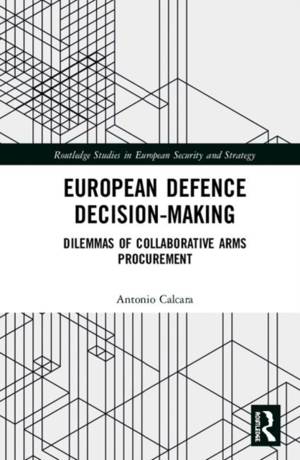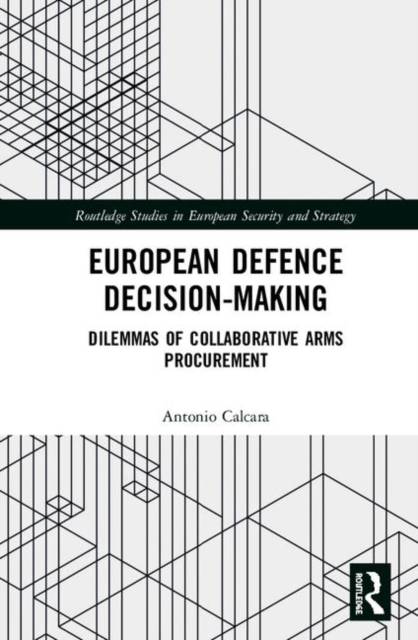
- Afhalen na 1 uur in een winkel met voorraad
- Gratis thuislevering in België vanaf € 30
- Ruim aanbod met 7 miljoen producten
- Afhalen na 1 uur in een winkel met voorraad
- Gratis thuislevering in België vanaf € 30
- Ruim aanbod met 7 miljoen producten
Omschrijving
This book comparatively examines the preferences of four key arms-producing states towards European joint armaments programmes.
The European defence market is characterised by a mixture of inter-state competition and European cooperation, and this work assesses why countries sometimes decide to cooperate with their partners, while in other instances they refrain from doing so. In order to shed light on this empirical puzzle, the book focuses on state-defence industry relations in the four major European arms producers: France, Germany, Italy and the UK. The main argument is that the public or private governance of industrial suppliers and market size are the two decisive variables that explain the simultaneous presence of cooperation and competition in European defence procurement. Specifically, it argues that in public governance ecosystems, arms industries are able to "capture" the state's decision-making processes to their own advantage. In private governance ecosystems, the state is relatively autonomous from defence industry's influence and able to pursue larger macro-economic and military benefits. Moreover, the strategy pursued by governments and defence firms is decisively shaped by market size because of its importance in determining the relative costs and benefits of collaborative arrangements.
This book will be of much interest to students of EU policy, defence studies, European politics and International Relations.
Specificaties
Betrokkenen
- Auteur(s):
- Uitgeverij:
Inhoud
- Aantal bladzijden:
- 166
- Taal:
- Engels
- Reeks:
Eigenschappen
- Productcode (EAN):
- 9780367425982
- Verschijningsdatum:
- 6/03/2020
- Uitvoering:
- Hardcover
- Formaat:
- Genaaid
- Afmetingen:
- 155 mm x 236 mm
- Gewicht:
- 385 g

Alleen bij Standaard Boekhandel
Beoordelingen
We publiceren alleen reviews die voldoen aan de voorwaarden voor reviews. Bekijk onze voorwaarden voor reviews.











